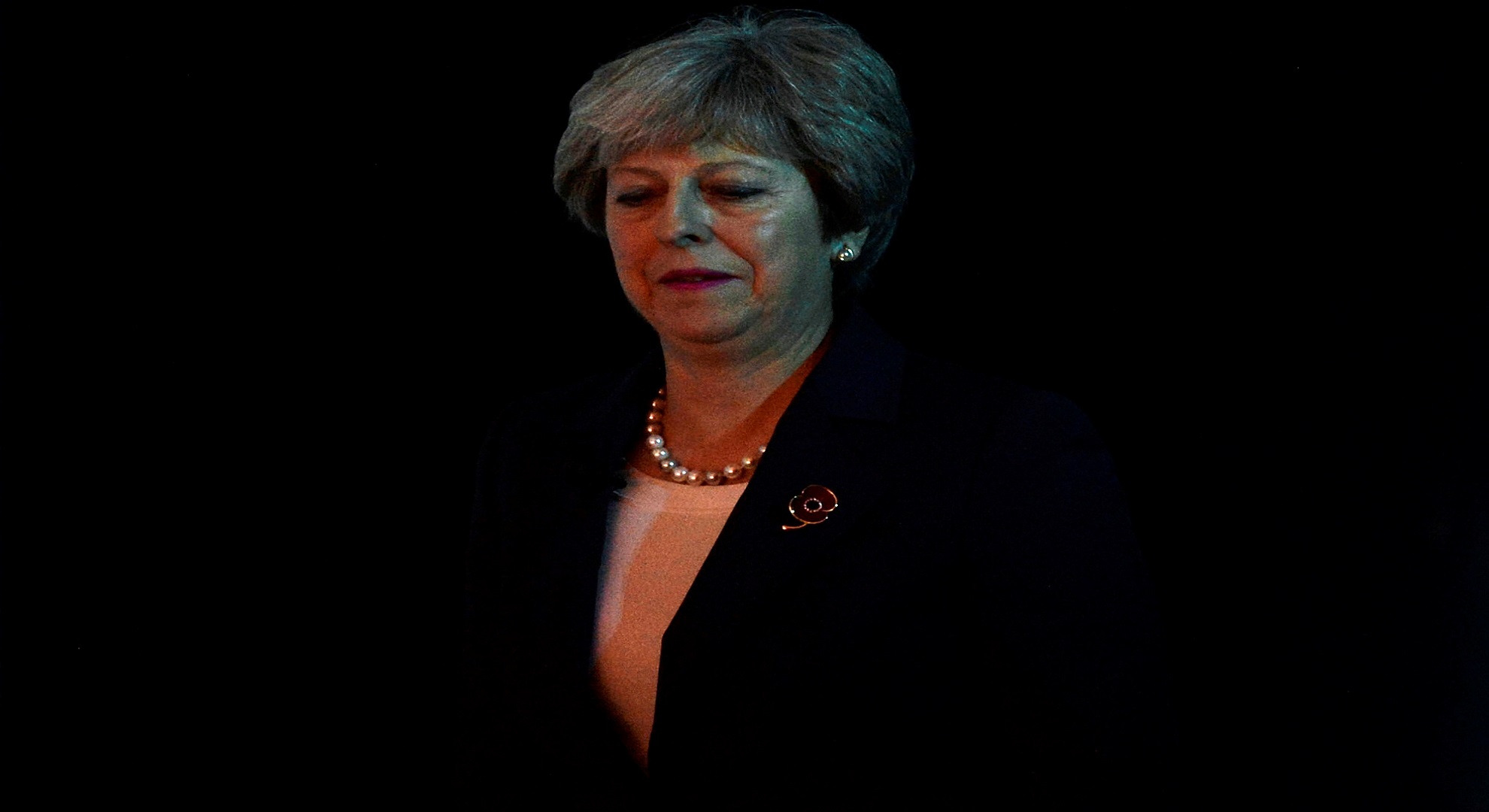Image: Britain’s Prime Minister Theresa May arrives to speak at the Conferederation of British Industry’s annual conference in London, Britain, November 6, 2017. REUTERS/Mary Turner
![]()
LONDON (Reuters) – Britain’s government said on Thursday it would use legislation to fix the time and date of the country’s European Union exit, addressing concerns of Brexiteers who fear slow negotiations and opposition to the divorce could cause delays.
The government said it was proposing a change to the EU (Withdrawal) Bill currently making its way through parliament to set the exit for 2300 GMT on March 29, 2019.
“We’ve listened to members of the public and Parliament and have made this change to remove any confusion or concern about what ‘exit day’ means,” Brexit minister David Davis said in a statement.
The date has previously been implied by a fixed two-year negotiating period triggered on March 29, 2017, but not explicitly stated in law.
Prime Minister Theresa May and her team are battling to keep exit negotiations with the EU moving, amid growing concern that talks have yet to begin on a transitional deal to smooth the exit for businesses or the complex terms of a future trade deal.
At home, May’s government is facing a rough ride in parliament on the withdrawal bill, which forms the central plank of her Brexit strategy.
After losing her parliamentary majority in an ill-judged election in June, May has to unite a Conservative Party deeply split over leaving the EU and rely on the support of a small Northern Irish party to get the bill through without defeats.
The decision to define the date of Brexit in law came with a clear statement that the government is prepared to consider other concessions – even those proposed by political opponents.
“This important step demonstrates our pragmatic approach to this vital piece of legislation,” Davis said. “Where MPs (Members of Parliament) can improve the Bill, whatever their party, we will work with them.”
The bill will begin the latest stage of its journey through parliament on Tuesday and Wednesday, when lawmakers will debate and vote on some of the 186 pages of changes that have so far been proposed. The bill is at an early stage, and is expected to take months to make its way through both houses of parliament.
(Reporting by William James; editing by Andrew Roche)
Copyright 2017 Thomson Reuters. Click for Restrictions.


